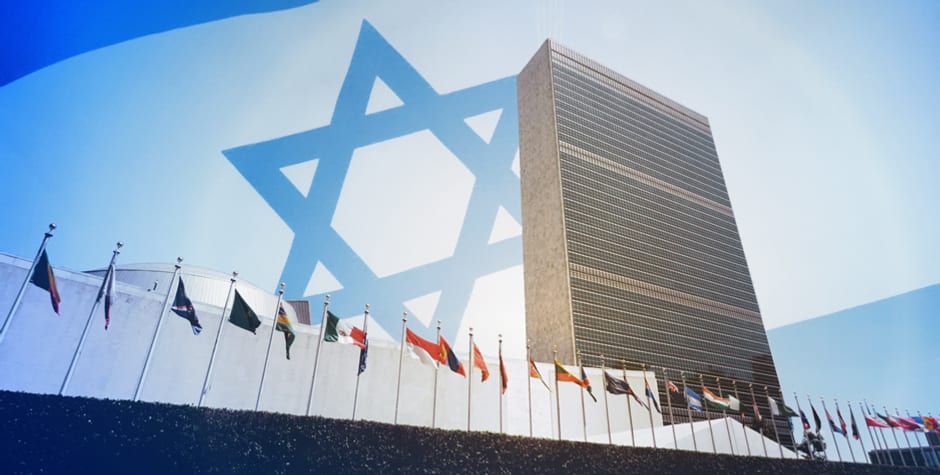UN's International Court of Justice Refuses To Order Israel To Stop Military Operations Against Hamas, but Anti-Israel Propagandists Will Abuse Decision To Delegitimize Israel's Right to Self-Defense
Just hours ago at The Hague, the International Court of Justice (ICJ) announced its order in the proceedings initiated by South Africa against Israel, accusing Israel of committing genocide in Gaza.
The Court did not grant South Africa’s most important request, i.e., that Israel suspend its military operations in Gaza. However, the Court did find jurisdiction, which will be misunderstood and misused by many to malign Israel. Like many U.N. resolutions and statements by U.N. officials and political leaders, this order will be used as political rhetoric against Israel.
However, one must note the following statement by the Court:
The Court may indicate provisional measures only if the provisions relied on by the applicant appear, prima facie, to afford a basis on which its jurisdiction could be founded, but it need not satisfy itself in a definitive manner that it has jurisdiction as regards the merits of the case . . . .
At the present stage of the proceedings, the Court is not required to ascertain whether any violations of Israel’s obligations under the Genocide Convention have occurred. (emphasis added).
In clearer legal terms, what this means is that (as the Court stated) a dispute between South Africa and Israel exists as to the interpretation and application of the Genocide Convention, i.e., one says acts of genocide are being committed and the other says they are not. As such, the Court has jurisdiction to determine who is right. But anti-Israel individuals and organizations will disregard this important legal distinction, add their own spin to it, and assert that the ICJ believes Israel is committing acts of genocide.
In our view, the Court did, however, err in finding that Israeli statements and actions complained of are capable of falling within the provisions of the Genocide Convention. The Court relied on the statements of Israeli officials, which were directed at Hamas and other terrorist organizations and not the Palestinians in Gaza in general. The Court also relied on statements by U.N. officials and other UNRWA officials who are clearly biased.
Further, while it is important to note what the Court said (further discussed below), one must also note what the Court did not say. The Court did not order Israel to suspend its military operations in Gaza as South Africa had requested. This is significant in at least two ways.
First, as we noted in our brief that we sent to different U.N. bodies and dozens of states, ordering an Israeli ceasefire would be tantamount to denying Israel the exercise of its right to self-defense, recognized in Article 51 of the U.N. Charter. Because the Court’s jurisdiction is alleged to be based only on the Genocide Convention, the Court simply has no jurisdiction as to the legality of Israel’s initial response or its conduct under the Law of Armed Conflict during the entire duration of the hostilities.
Second, considering that’s exactly what the Court ordered in the provisional measures order in Ukraine v. Russia, the Court seems to be cognizant of the lawfulness of the Israeli response to the October 7 attacks. By not ordering Israel to suspend its military operations, the Court has implicitly recognized the necessity of Israel’s right to defend itself and its response to the barbaric attacks by Hamas and other terrorist organizations.
Let’s turn to what the Court did say. While anti-Israel groups will twist and abuse the provisional measures indicated by the Court, in our view, they are not only simply symbolic but also something Israel is already doing and has never disagreed with. As a professor friend of mine says, it’s like restating the obvious.
In the first five provisional measures, the Court ordered that Israel take all measures within its power to prevent the commission of all acts within the scope of the Geneva Convention. Israel already agrees with it and has been doing that all along. In fact, during the oral argument on January 12, 2024, Israeli lawyers stated that what happened on October 7 does not absolve Israel from complying with International Humanitarian Law. Consistent with International Humanitarian Law, Israel takes every precaution to minimize harm to civilians in conducting its military operations.
The sixth measure requires Israel to submit a report to the Court on all measures taken to give effect to the five measures. If Israel chooses to submit such a report, it would be easy. Israel has already declassified many documents showing the kind of measures it takes to comply with the Law of Armed Conflict and to minimize harm to civilian lives and facilities.
